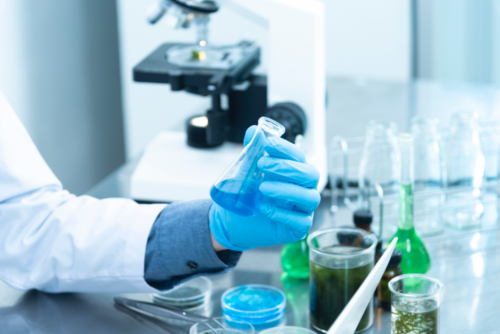
Skills training will accelerate life sciences innovation in Maryland
Commentary by Kelly Schulz, CEO, Maryland Tech Council
Maryland made waves last year by no longer requiring college degrees for thousands of state government jobs. Since then, states like Pennsylvania, Utah and New York have followed Maryland’s lead.
This is great for Maryland workers, but it’s a reminder for private sector employers that hiring for skill can be more valuable than an advanced degree when filling specific jobs.
For a test case in how to upskill Marylanders for rewarding careers, consider Maryland’s life sciences industry.
Our life sciences industry is strong, generating $20 billion in economic activity in the state and employing 54,000 people. We host 2,700 biotechnology and life sciences companies and federal labs researching and delivering life-changing treatments, vaccines, cures, and therapies to the world.
Despite these strengths, we face a significant challenge. Local life sciences employers are consistently unable to find enough qualified workers to fill critical roles. We estimate that nearly 3,000 biotechnology jobs in Maryland are currently vacant and that number is growing.
A new program, known as BioHub Maryland, is designed to grow and diversify the state’s talent pipeline to fill key jobs, create opportunities for all residents, and expand the state’s global innovation advantage.
Created by the Maryland Tech Council, BioHub Maryland helps residents of all backgrounds pursue life sciences careers by offering skills training, career resources, and access to thousands of life sciences job openings.
BioHub Maryland will feature a state-of-the-art, in-person laboratory where trainees can gather for hands-on, “learn by doing” training to gain a competitive edge in essential biopharma manufacturing concepts.
Don’t let the white lab coats fool you. Many promising biotech jobs require only a high school diploma, a GED, or a 2-year Associate’s degree, and they pay more than comparable jobs in other fields.
A Marylander with only a high school diploma can earn $72,300 per year as a clinical data assistant with a Maryland life science company. That’s more than double the wage paid by comparable jobs in other fields. A validation technician with a 2-year Associate’s degree can earn $93,000 – also more than double the average for comparable jobs in other fields.
More than 1.3 million Marylanders are skilled through alternative routes – meaning they’ve earned career skills through apprenticeships, on-the-job training, or military service.
All they need are training programs like BioHub Maryland to help them find their future and unlock highly competitive compensation.
Veterans will also benefit. We are partnering with Platoon 22 to reskill military veterans for the life sciences industry. Life sciences companies are mission-driven: they fight diseases and save lives. They need men and women who understand logistics, teamwork, time management, and other skills learned in the military.
Investing in Maryland’s life sciences workforce is no zero-sum game. Virginia just announced an unprecedented $66 million investment in life sciences workforce development, and North Carolina has directed $75 million to life sciences in recent years. Competition is fierce for life sciences jobs, and Maryland cannot afford to lose.
The question is not whether life sciences companies will create good-paying, family-sustaining jobs in the coming years; the question is whether we will have a strong enough talent pipeline to keep those jobs in Maryland.
BioHub Maryland will demonstrate that training and hiring for skill, not simply advanced degrees, will accelerate Maryland’s global life sciences leadership.
Media
Henry Fawell
Campfire Communications
henry@campfirecomm.com